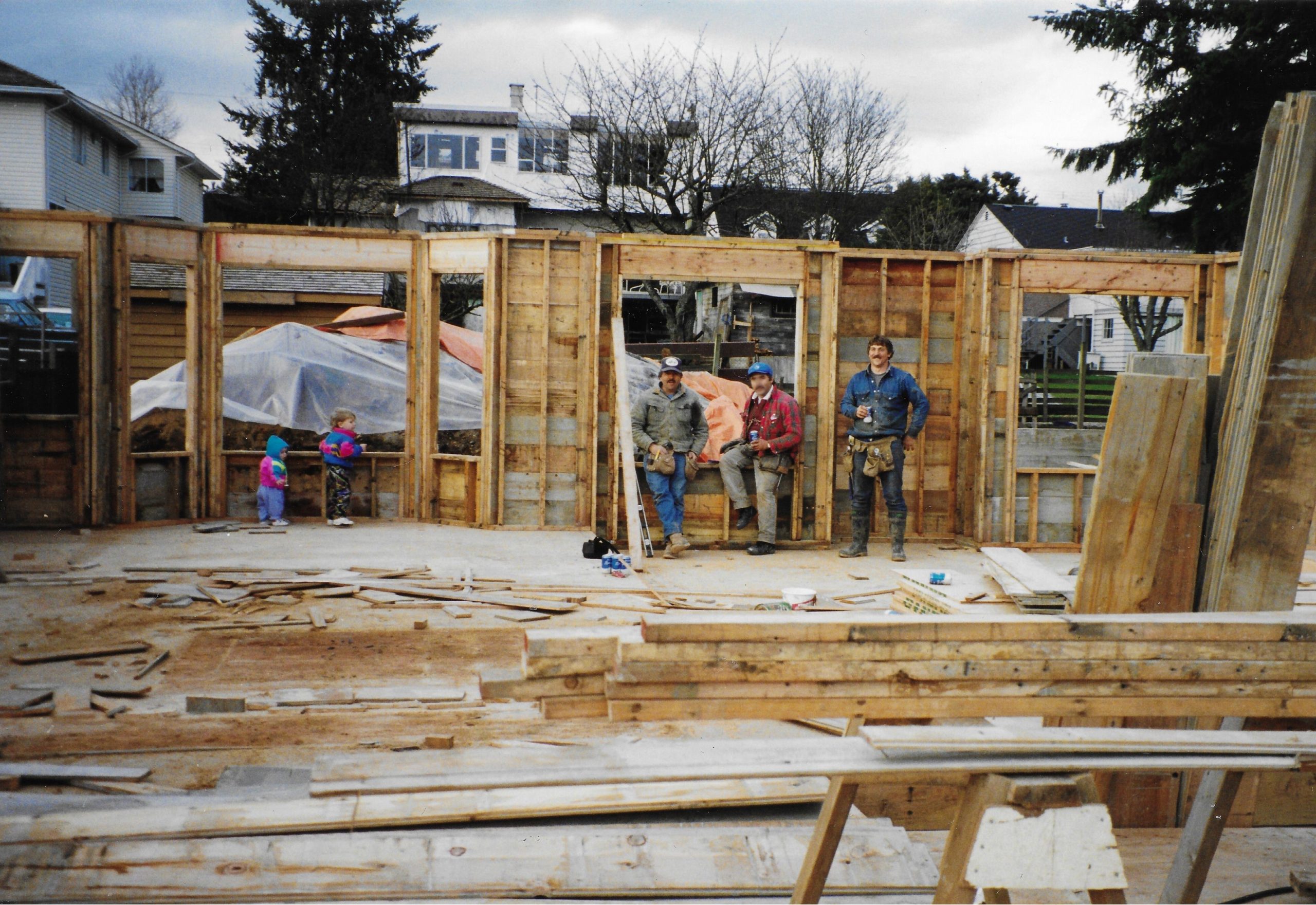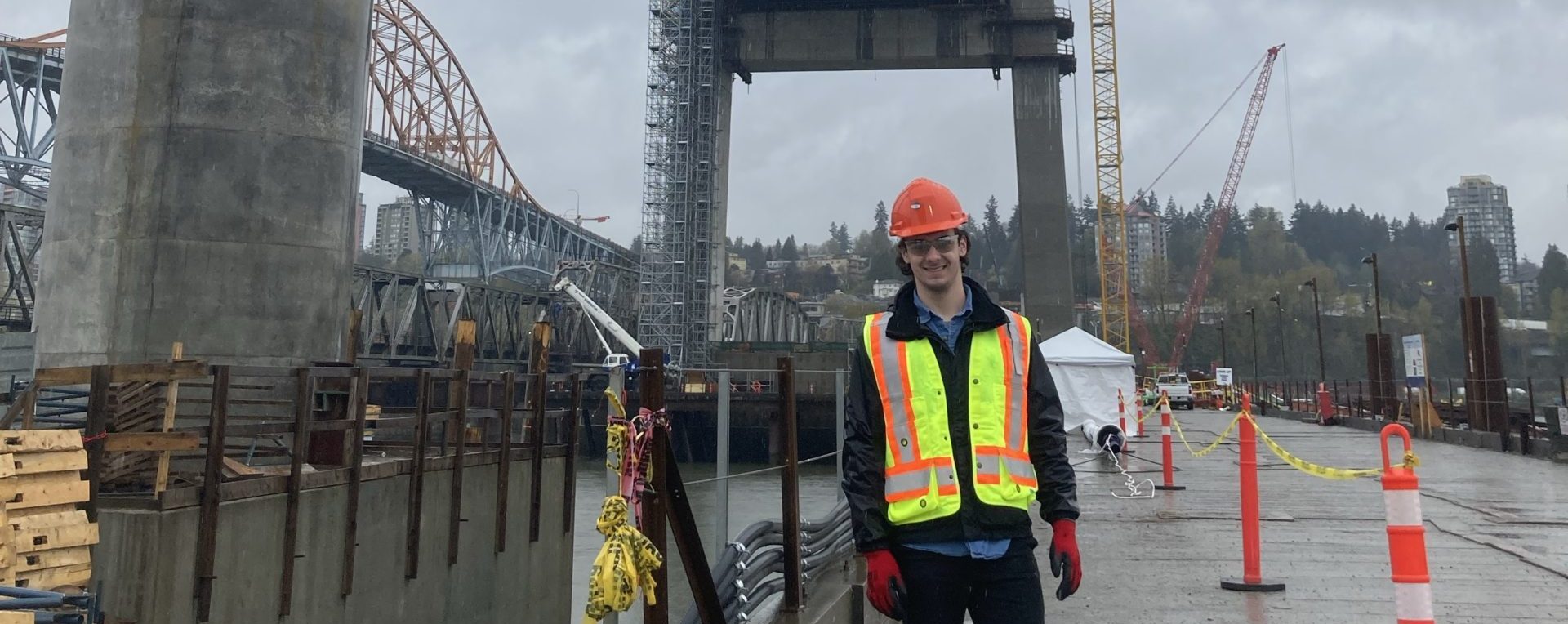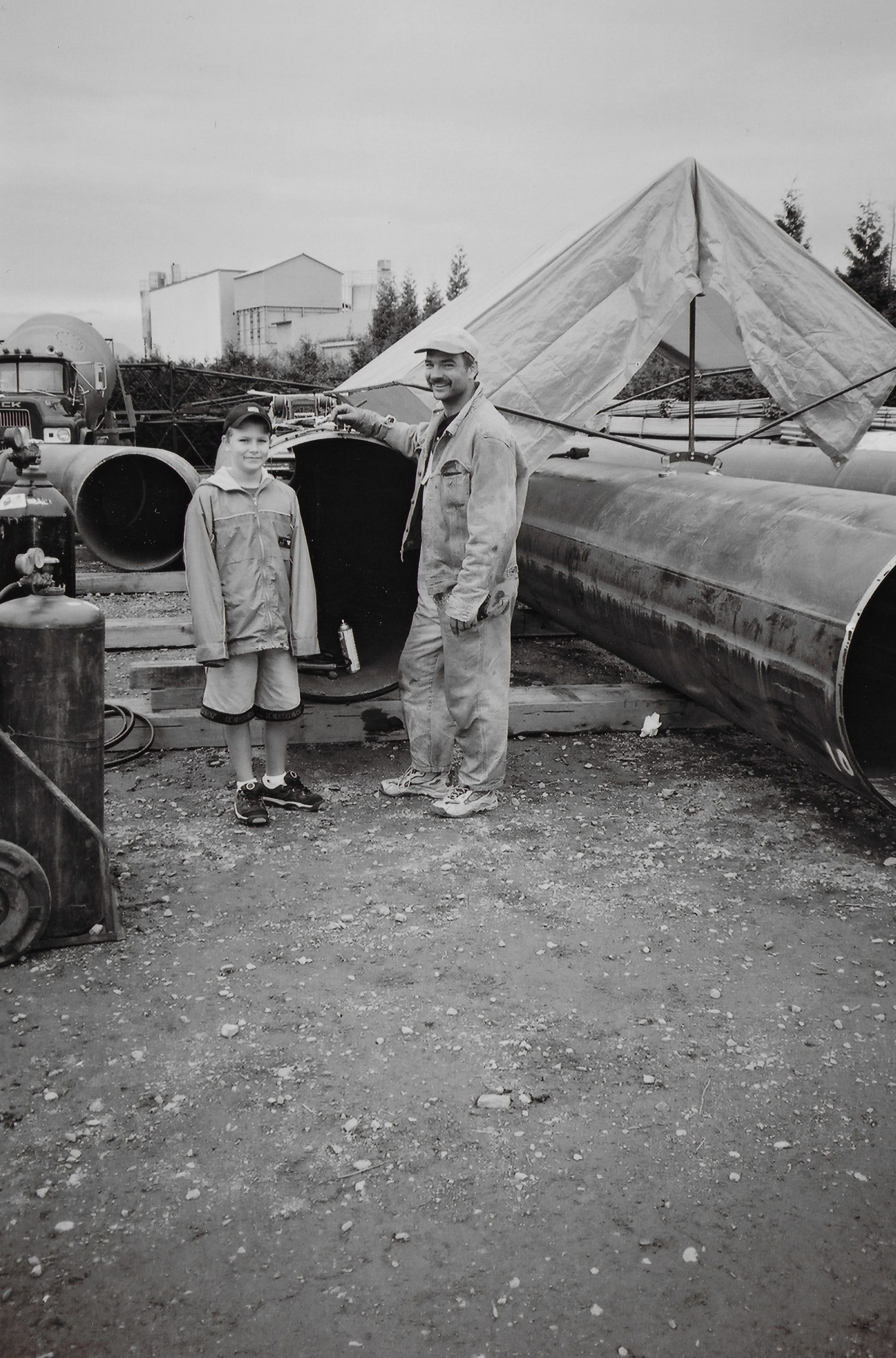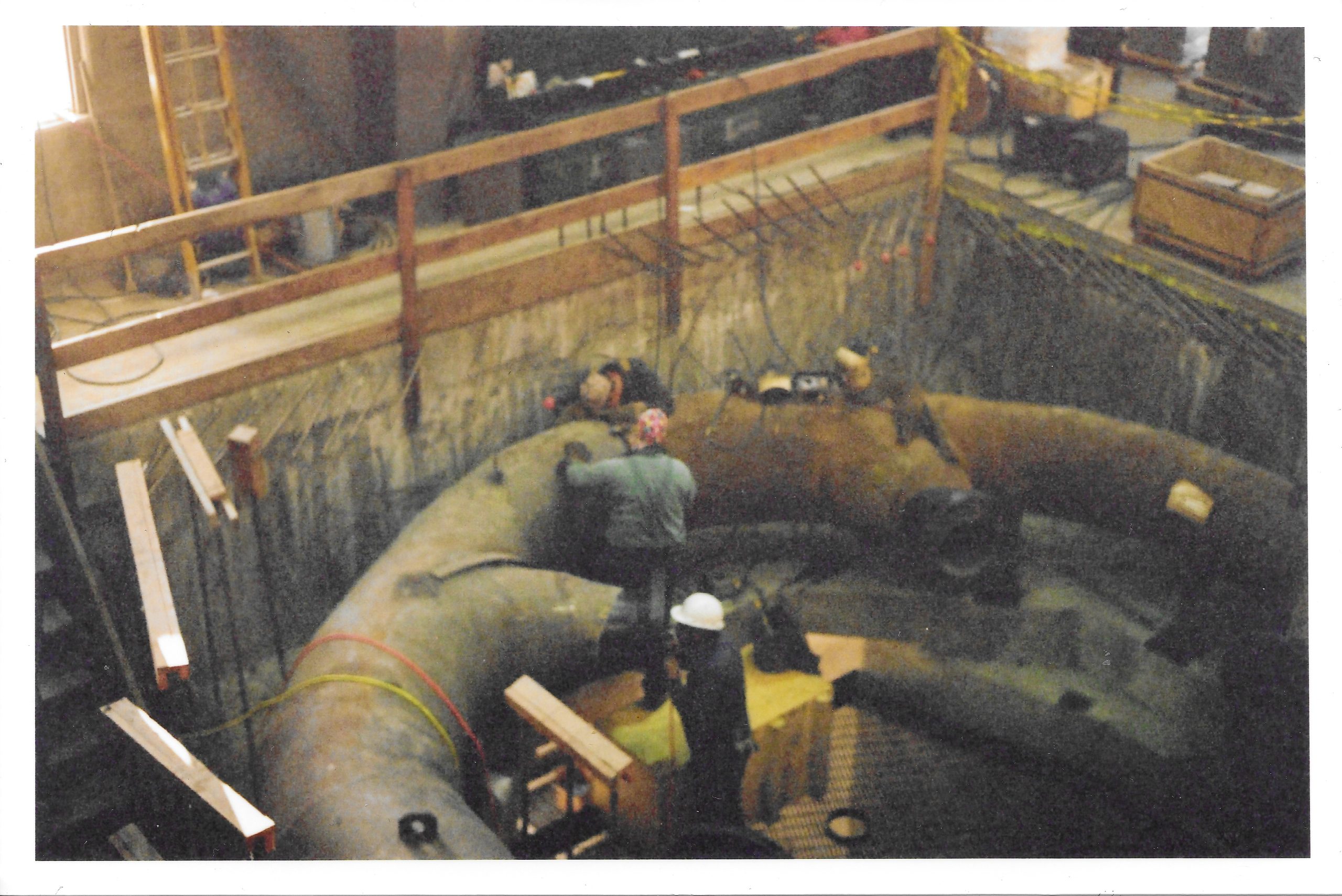Growing up in a trades family means I grew up surrounded by ferociously loyal, hardworking and caring people. The trades industry has empowered my family to thrive in B.C., so BCIB prioritizing local hires really hits close to home.
My best memories always involved working with my family. When I was about eight years old, our backyard flooded and I spent the weekend outside with Dad digging ditches. I think this was the first time I learned how to use a shovel and dig a hole properly, despite my height, the cold air, and my wet clothes. It was a miserable weekend, but in hindsight, our time out there was really special because it taught me to not give up when things get tough. I think that working together like this is how the value of hard work has been passed down in my family for generations.
Our work ethic found a home in the trades, beginning with my grandpa, Papas. Papas grew up hard as an Albertan farm boy who moved to BC in the ‘50s to work as a choker-setter, logging in Haida Gwaii. He told me “it was the lowest job to be had. I would climb through the bush with a steel cable and cinch it around felled trees so the crane operators could get them out. I didn’t have a rain jacket. The camp cook sold me his.” Eventually, one of the guys took him on at the Fraser Mills in Coquitlam where Papas drove a tugboat hauling log booms. He told me “I worked there until I could afford my dream—welding school.”
My uncle Vic followed suit, welding like Papas. His son, my cousin Brandon, would become a welder too, starting at the age of 15 as a helper on the LNG project in Ladysmith. Similarly, my other cousin Justin joined as Papas’ helper the following year to finish off the same project. These men in my family represent three generations of Bilodeaus in the trades who’ve worked on nearly every new capital project in B.C. since the ‘70s.
I remember a few years back, when Papas had some oak trees felled on his acreage in Chilliwack, my Dad and I with Vic and Brandon spent the day cutting, hauling and stacking logs for firewood, further embedding the value of hard work in us all, along with a pile of woodchips in my socks –so many that I had to throw the pair out. But really, we were lucky to have been able to make these trips out to Chilliwack as often as we did. Papas always knew that calling us up about a job would tap into the way we were raised; he knew how to cut through the busyness of our lives and nudge us to show how much we care through our actions, even if said actions might require heavy machinery.
Without opportunities locally, I wouldn’t have been able to make the connection between my family and the trades or have grown to understand what working hard for the right reasons looks like. Before starting in the trades, my Dad worked out of camps up north as a geologist, six weeks on and one week off. When I asked him about giving up geology, he explained to me how his priorities shifted when he met my mother. He said, “I loved working in the bush, but everything changed when I met your Mom. I wanted to be at home with her and it was hard on us being apart for so long.” He went on to say, “Papas was in the union, and I knew a plumber could be a fitter too, so that’s what I did.” My Dad’s been a fitter for 30 years now and he’s worked on some massive projects like the Abbotsford Regional Hospital and Oakridge Mall constructions; but, most importantly, he’s never had to leave the lower mainland for work.
I am confident that local opportunities in the trades altered the course of my life for the better. My family’s history in B.C., my father’s story, and my upbringing each reflect how transformative and empowering career pursuits in the trades can be.
Every qualified worker in the trades should have the chance to build their career close to home. Through a system called priority hiring, BCIB works with contractors to hire skilled tradespeople who live within 100km of projects. This system ensures that locals get the chance to work on projects in their communities first. Local opportunities benefit workers, families and B.C.’s construction sector as a whole.




